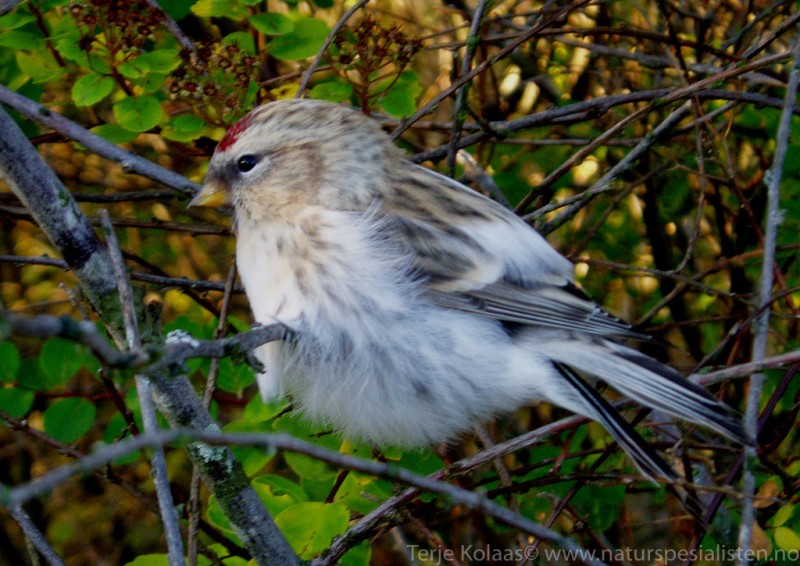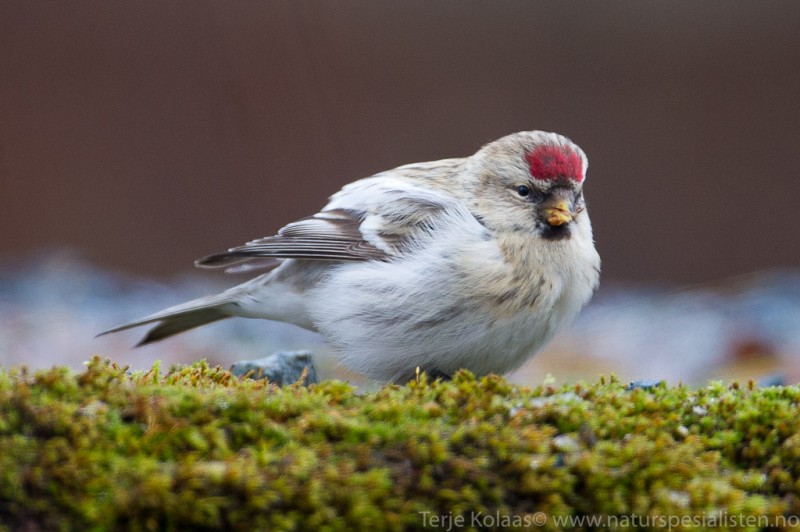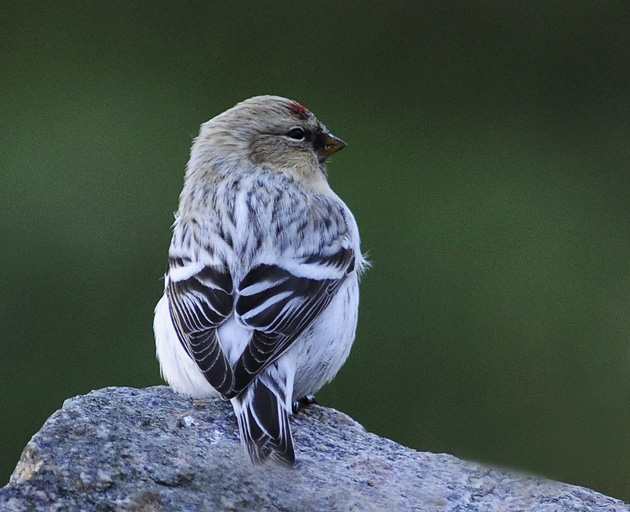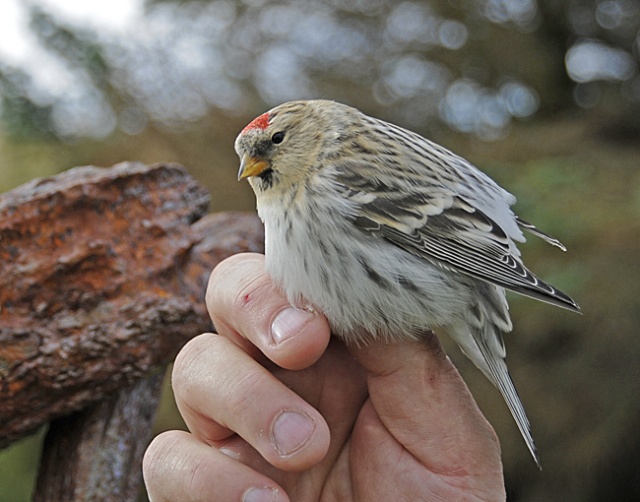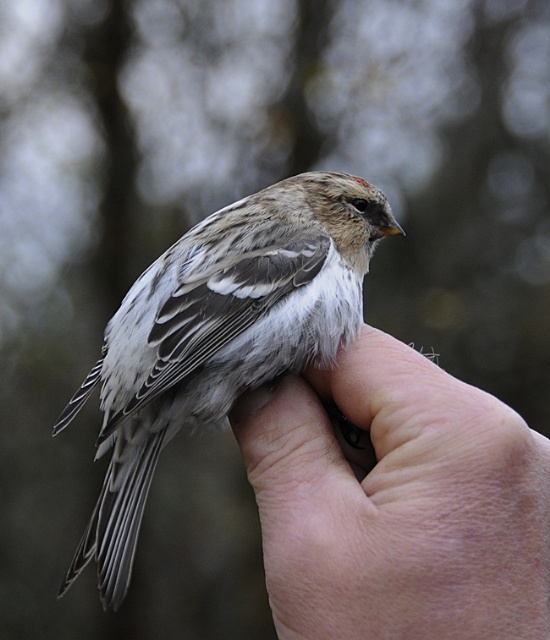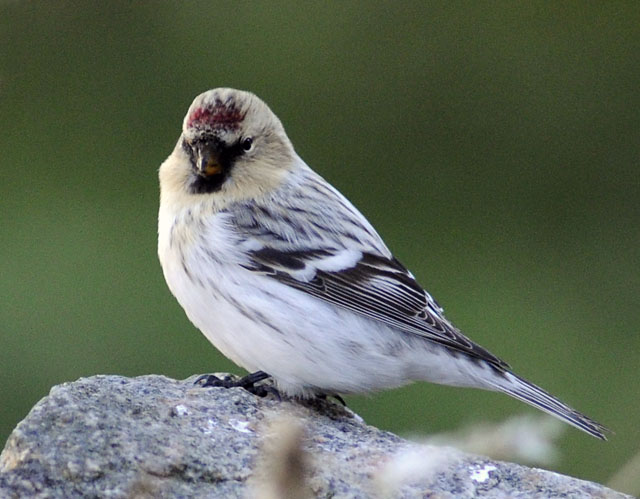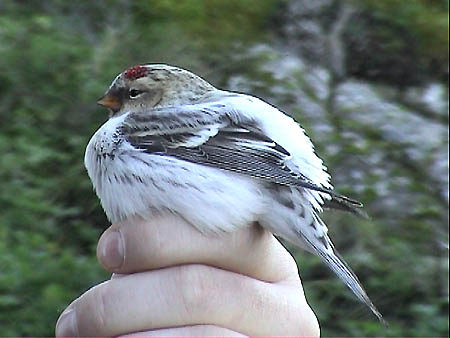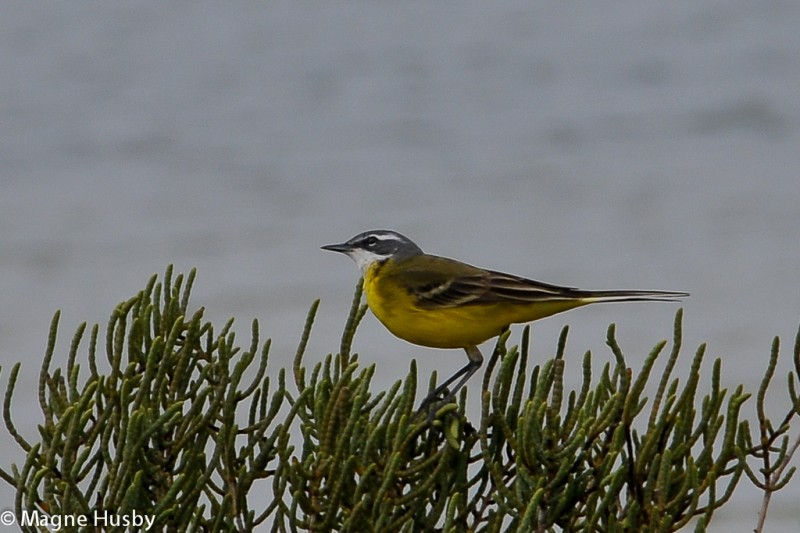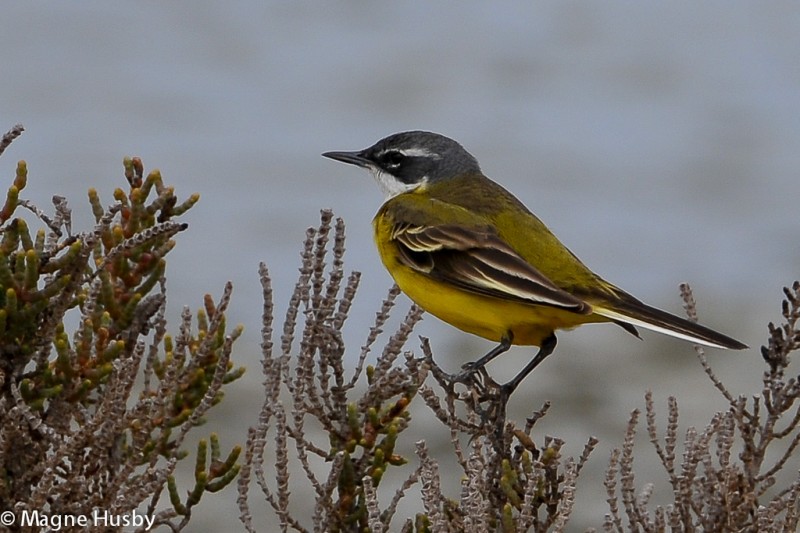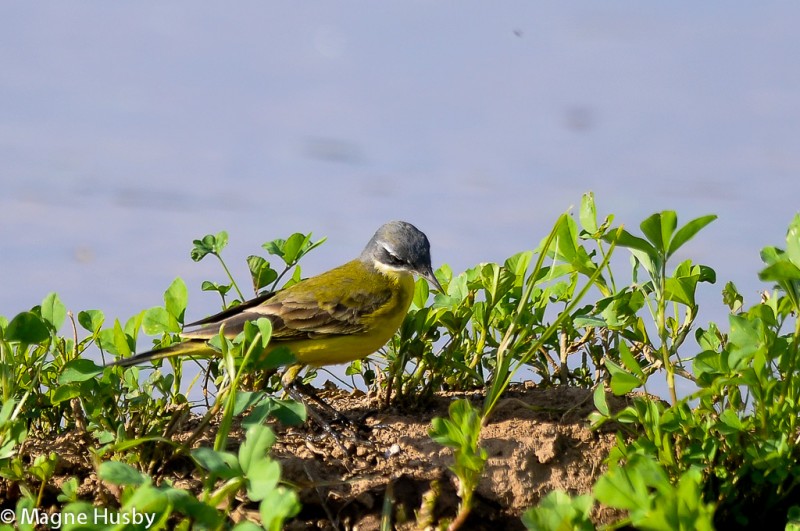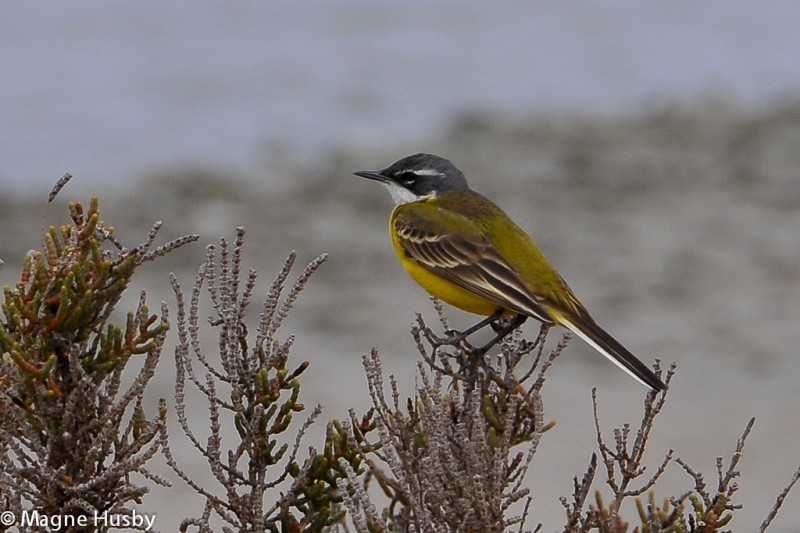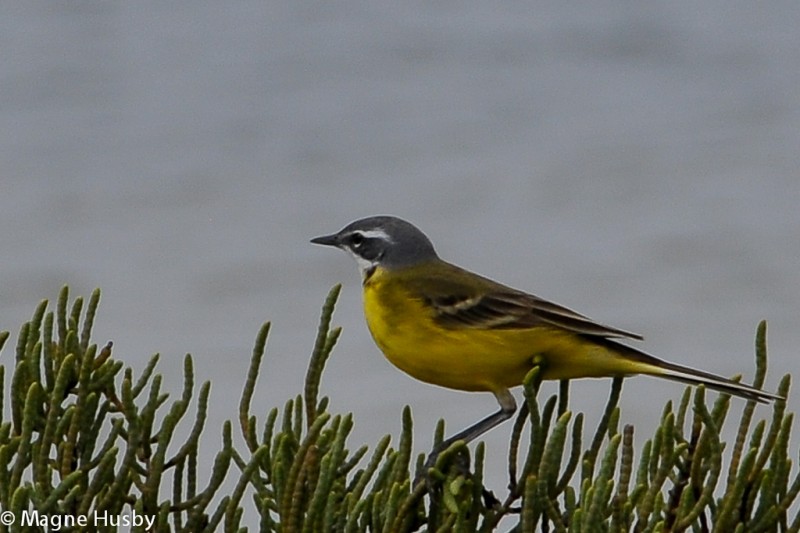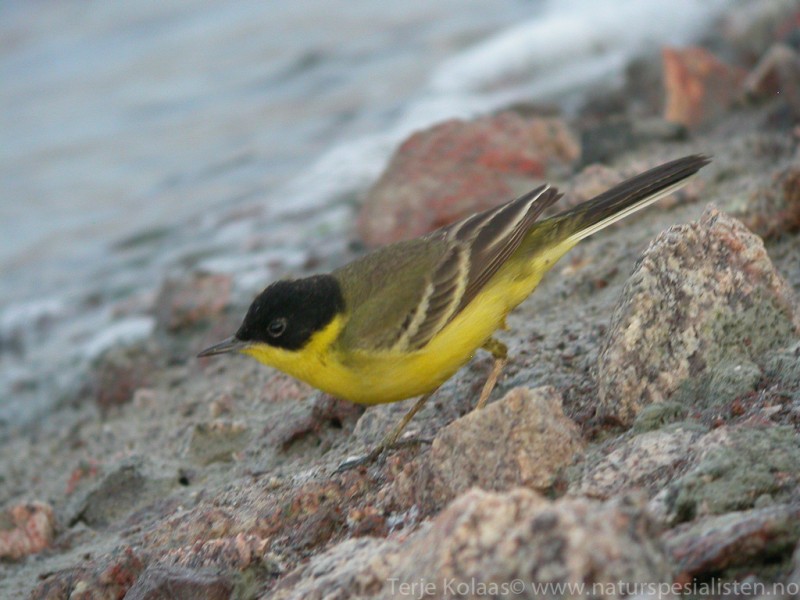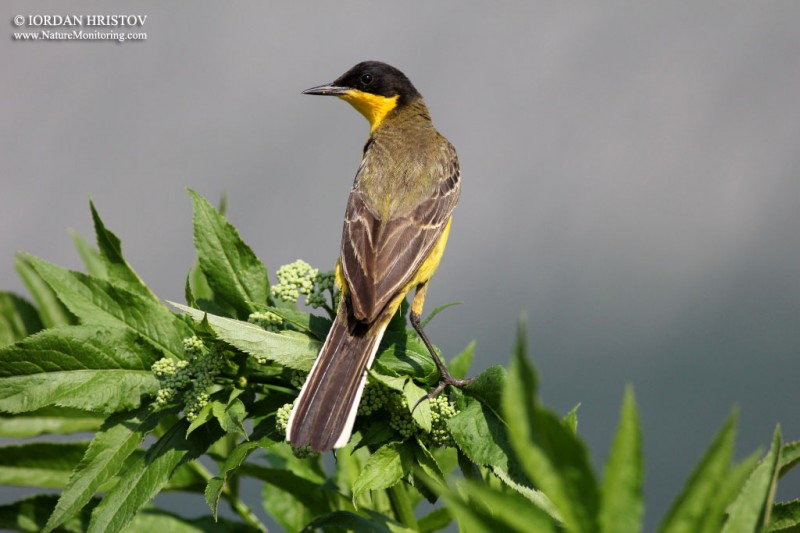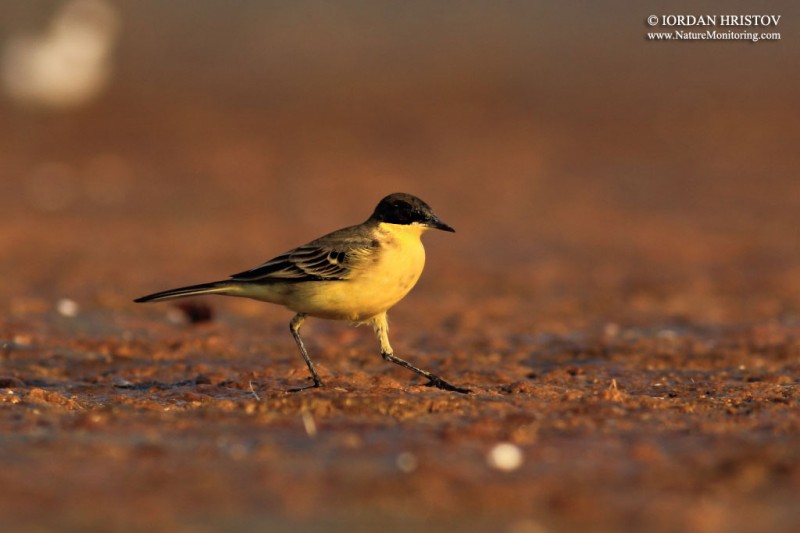Arctic Redpoll (Acanthis hornemanni)
Yellow Wagtail (Motacilla flava)
Differs from Common Redpoll by white, almost unstreaked rump (young birds may have some streaks). Under tail coverts white, with only very narrow black center, or no black at all. Upperparts greyer, underparts whiter with less prominent streaking. Wing bars brighter. Bill shorter and less deep, and face "flatter". Juveniles difficult to distinguish from Common Redpoll, even when held in hand. Species status debated.
Sound:Very similar to Common Redpoll, but possibly with a softer tone and slightly longer pauses between each syllable. See Common Redpoll.
Distribution:Xeno-canto map
Ecology:Birdlife ecology
Links:
Observation.org Latest observations
Image search Flickr NB! May give other species
CCHighly variable with many subspecies in different regions. Upperparts mainly grey and greenish, underparts yellow. Tail quite short compared to other wagtails, and the whole bird in profile is not unlike a pipit. Smallest wagtail in the region. Some birds are very pale below, head markings are very variable, depending on subspecies. Hybrids are not uncommon. Differs from Grey Wagtail in dark legs, only pale yellow vent and narrow wing-bars. Juvenile White Wagtails and Yellow Wagtails can be confused, but White Wagtail is greyer, with big grey breast patch (Yellow Wagtail may show narrow breast band). Closest congener is Citrine Wagtail, which lacks dark lore, has broad wing-bars and grey back.
Sound:Contact call characteristic and widely used; a sharp, drawn out "pseeeoo" with an accented ending falling in pitch. Song primitive and less striking. A variable phrase with two or three notes resembling the contact call in timbre. Beware differences in calls and songs between different subspecies.
Contact call:
Distribution:
Wikipedia: map (se also Xeno-canto below)
Ecology:Birdlife ecology
Links:
Observation.org Latest observations
Image search Flickr NB! May give other species
CC
 English
English Albanian
Albanian
 Armenian
Armenian
 Bulgarian
Bulgarian
 Catalan
Catalan
 Croatian
Croatian
 Czech
Czech
 Danish
Danish
 Dutch
Dutch
 Finnish
Finnish
 French
French
 Georgian
Georgian
 German
German
 Greek
Greek
 Hungarian
Hungarian
 Italian
Italian
 Latvian
Latvian
 Lithuanian
Lithuanian
 Macedonian
Macedonian
 Norwegian
Norwegian
 Polish
Polish
 Portuguese
Portuguese
 Romanian
Romanian
 Russian
Russian
 Sami : Lule sami
Sami : Lule sami
 Sami : North sami
Sami : North sami
 Sami : South sami
Sami : South sami
 Scientific names
Scientific names
 Serbian
Serbian
 Spanish
Spanish
 Swedish
Swedish
 Ukrainian
Ukrainian


